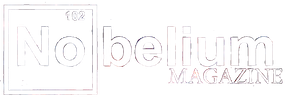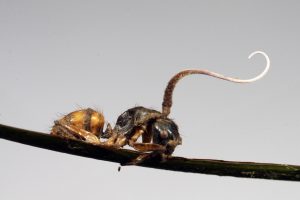For many pet owners, the bond between their pets and themselves is incredibly unique and often cannot be described through just a few sentences. Therefore, when their furry friends pass away, the experience can be heart-wrenching and life-altering. The grief, although it may be painful for a long time, can be eased by adopting a new pet or deciding to continue their lives pet-free.
As for those who may be continually distraught by the death of their pet and refuse to replace their beloved family member, the company ViaGen may aid in their healing process.
ViaGen Pets and Equine is a company committed to the extension of the pet-human bond through animal genetics. According to the company’s mission statement, they “believe that moving the promising and exciting area of animal genetic research forward will benefit all animals.” The company began in 2002, with a commitment and mission to the preservation of horse, pig, and cow genetic material. Along with the cloning services they offered, the organization was a leader in the cloning and genetic preservation industry from the very beginning. In 2003, ViaGen obtained ProLinia in Athens, Georgia, which expanded their cloning space and allowed them to utilize technologies designed by the team who’d originally cloned Dolly the Sheep, the Roslin Institute of Edinburgh, Scotland. Later in 2007, ViaGen combined with TransOva Genetics to encourage bovine cloning in North America. After TransOva Genetics acquired ViaGen in 2012, ViaGen launched ViaGen Pets to provide cloning services for pet owners internationally. Currently, Viagen comprises ViaGen Livestock, along with ViaGen Equine and ViaGen Pets which both cryopreserve genetic material and cloned animals.
Their dedication to genetic advancement is accurately reflected on the company’s website, where they link their most recent successful cloning experiments like the Black Footed Ferret and the Przewalski Horse. But how is the company able to clone both domestic and wild animals?
Well, the process begins with a Biopsy Kit which is shipped to the owner’s house so they may take it to their veterinarians and receive tissue, individual cells, or germ plasma. Once at the Cell Culture Center in Texas, the cells are cultured until there are around 1 million. All genetic materials are sterilized, processed, and cell growth begins. The material is then placed within liquid Nitrogen (-186 Celsius) to begin the cryopreservation process. In the liquid nitrogen, the sample will continue to be viable and can be kept forever or at least until the owner is ready for the next step of the cloning process (ViaGen). Once the owner is ready to begin the actual duplication of their beloved pet, a cell nucleus from the pet is injected into a donor egg that has had its genetic material removed. ViaGen’s “proprietary treatment process” then combines the nucleus and egg, forming an embryo. This embryo is then implanted into a surrogate animal that will birth an identical pet. Once the pet is born, the owners are now able to have a pet with incredibly similar intelligence, temperament, and appearance to the original animal (ViaGen).
Through ViaGens exploration of Animal Genetics and Cloning, astounding scientific feats have been achieved, specifically with the cloning of non-primate animals. Although many have doubts about the future of animal cloning, ViaGen seems to have gone full-speed ahead as the president, Blake Russell, leads a partnership with “San Diego Zoo to work with cloning high-performance dogs for police, military and other services”(Forbes). As this field of science advances over time, arguments of ethics and scientific backlash are still observed. Many argue that the surrogacy process for the host animals is incredibly immoral as the pets are bred to be docile and for many animals only one embryo in 100 ever leads to a live birth (Forbes). Additionally, the controversial process of cloning transcends the animal kingdom as speck-size human embryos are currently being cloned to obtain stem cells (MIT Technology Review). Even with this pushback, pivotal developments will most likely still be made within this industry.






